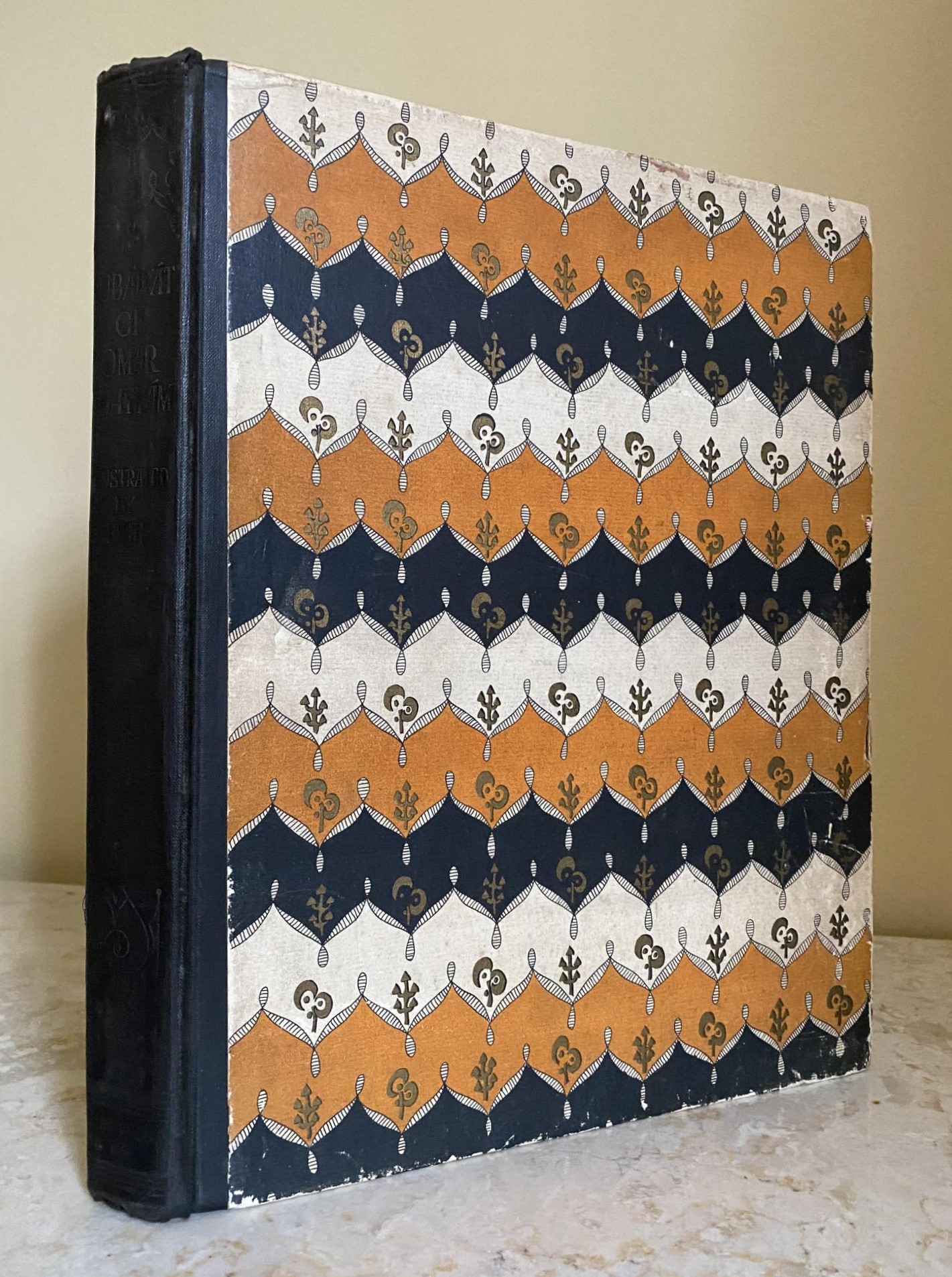
Fifteen hundred of the volumes were comprised of autograph letters and important historical and literary manuscripts.

Within the collection, 4,000 volumes were rare books and first editions. Doheny's library in Camarillo, California, "represented one of the rarest book libraries in the United States. This copy comes from the library of Estelle Doheny (1875-1958), with her red morocco book label lettered in gilt. This copy comes from the library of Estelle Doheny Many of FitzGerald's phrases have entered the common stock of English quotations and allusions. It is reasonable to suggest that in its own way the lyrical agnosticism of FitzGerald's Rubáiyát was to be every bit as influential on the advent of modernism as Darwin's Origin of Species published in the same year as the first edition. FitzGerald himself referred to his work on the Rubáiyát as a "transmogrification" rather than translation, describing how he "mashed up" several stanzas into one, and calling the result "A pretty little Eclogue tessellated out of Omar's scattered quatrains". The fact that Omar Khayyám is the most famous poet of the East in the West is entirely due to FitzGerald's celebrated adaptations, which would prove to be the "most popular verse translation into English ever made" (Decker, p. Omar Khayyám (1048-1131) was a Persian mathematician, astronomer, philosopher, and poet, author of about a thousand quatrains.

The second edition is the longest at 110 quatrains. FitzGerald substantially revised the text of the Rubáiyát four times, with none of these five versions seen as truly definitive. when a copy re-appeared in their catalogue in 1929, it had already reached a price of 52 10s. Five hundred copies of the second edition were printed, with Quaritch selling each at a price of 1s. The three translations by women comprise this collection of recordings of the Rubaiyat of Omar Khayyam.Second edition, substantially expanded and revised from the first of 1859.

A Persian ruba'i is a two-line stanza with two parts (or hemistechs) per line, hence the word "Rubáiyát" (derived from the Arabic root word for "four"), meaning "quatrains". The Rubáiyát of Omar Khayyám (Persian: رباعیات عمر خیام) is the title that Edward FitzGerald gave to his translation of a selection of poems, originally written in Persian and of which there are about a thousand, attributed to Omar Khayyám (1048–1131), a Persian poet, mathematician and astronomer. Translated by Jessica Rittenhouse (1869 - 1948), Jessica Cadell et al. Download cover art Download CD case insert Rubáiyát of Omar Khayyám, Collected Translations


 0 kommentar(er)
0 kommentar(er)
